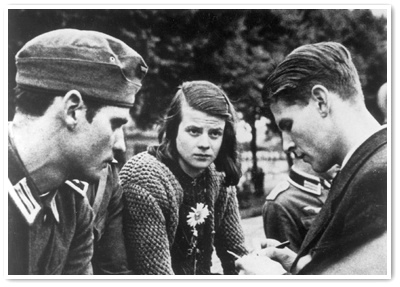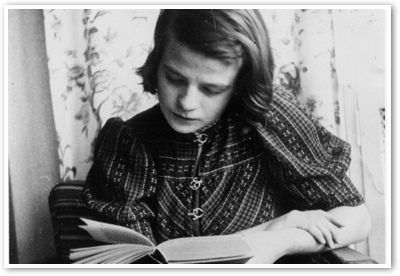Playing Scruples
- TOD WORNER
Several years ago, there was a terrific game called "Scruples."
 |
Everyone wanted to play it. It was quite clever, really. To be sure, Scruples was more complex than your traditional board games like Monopoly or action games like Pictionary. Instead, what was essential to playing the game of Scruples was a fundamental understanding of exactly what "scruples" are. The Merriam-Webster dictionary describes a "scruple" (as noun) as "an ethical consideration or principle that inhibits action." As verb, Merriam-Webster defines "scrupling" as being "unwilling to do something because you think it is improper, morally wrong." To be "scrupulous" would be to exert thoughtful "care about doing what is honest and morally right."
To begin the game each player is given five cards with moral dilemmas and a card with the answer "Yes", "No", or "Depends." The object is to review the question in your hand (e.g. "In a parking lot, you accidentally dent someone's car. Do you leave a note taking responsibility?"). Then, you ask the question to a person who you think will answer the question in the way your answer card says ("Yes", "No" or "Depends"). If you ask the question and get the answer you'd expect, you lose a card with the object ultimately to lose all of your cards. But your plans can be foiled. The person you are asking questions could lie, obfuscate or simply disagree with you about your expected answer. This leads to a challenge, debate and vote by other players as to who makes the greater argument about a player's honesty and character. If this doesn't reduce itself to a fistfight or stony silence for months on end, it can be great fun.
But not for me. No, in truth, I found Scruples to be rather tedious and boring. Why? Because, at the ripe, worldly-wise age of twenty-one, I was extraordinarily scrupulous. In my version of playing this game, there was no vagrant unfed, no injured animal untended to, no test-cheater unpunished, no personal flaw un-remedied. In the abstract, I was simply an extraordinary person. I fundamentally would do the right thing. Now, please understand the tongue-in-cheek nature of my comments. I was (and hopefully am) a relatively fun-loving, down-to-earth, decent kind of guy. But when I played this game, something would come over me and I would end up sort of giving Jesus a run for his money. The decisions seemed pure, easy and without much cost. And thus, Scruples became quite boring.
Now, let us move away from the warm, well-fed, lightly oiled group of friends in the living room of my early twenties and instead find ourselves in the cold, unforgiving winter of Nazified Munich in 1943.
 Hans & Sophie Scholl with Christoph Probst
Hans & Sophie Scholl with Christoph ProbstAt this time, German society has been dominated by the draconian rule of Hitler and his Gestapo for over ten years. The ravages of ruthless war have been endured for three and a half years. The promises of a racial utopia and the trumpeting of infallible Germanic values were being buried by the hundreds of thousands of bodies (German, Soviet, civilian) piling up on the Eastern front. However, in spite of halting and reversing fortunes against the Allied forces, the Nazi's iron grip at home was not only steadfast, but was fearfully tightening. The regime felt desperate. At this time, more than ever, internal dissent must be crushed. It is also at this time that we meet Sophie Scholl.
Sophie was born in Baden-Wurttemberg. Her father was mayor with views dissenting from Nazi orthodoxy which would ultimately land him in prison. She was interested in art, philosophy and theology. Her career began as a kindergarten teacher, but the war would draw her into conscripted service as a nursery teacher and metallurgical plant worker. During the war, Sophie's boyfriend would relay his experiences of German atrocity on the Eastern front while her brother and friends would attract her to organized underground resistance against the Nazi regime. Cardinal John Henry Newman's writings and sermons would provide solace and inspiration regarding conscience in a wicked system. In 1942, enrolled as a student at the University of Munich, Sophie, her brother and several friends formed "The White Rose" resistance organization.
The group would be short-lived. Inspired by Bishop August Graf von Galen's 1941 sermon which leveled blistering criticism against the Nazi's pseudoscientific euthanasia program against the feeble and mentally ill, repulsed by Nazi atrocities and encouraged by military setbacks, six anti-Nazi pamphlets were written (by Sophie's brother and other members) and distributed at great peril with the call for passive resistance by the German citizenry. From Pamphlet 1:
"Therefore every individual, conscious of his responsibility as a member of Christian and Western civilization, must defend himself against the scourges of mankind, against fascism and any similar system of totalitarianism. Offer passive resistance — resistance — wherever you may be, forestall the spread of this atheistic war machine before it is too late, before the last cities, like Cologne, have been reduced to rubble, and before the nation's last young man has given his blood on some battlefield for the hubris of a sub-human. Do not forget that every people deserves the regime it is willing to endure."
From Pamphlet 3:
"But our present 'state' is the dictatorship of evil. 'Oh, we've known that for a long time,' I hear you object, 'and it isn't necessary to bring that to our attention again.' But, I ask you, if you know that, why do you not bestir yourselves, why do you allow these men who are in power to rob you step by step, openly and in secret, of one domain of your rights after another, until one day nothing, nothing at all will be left but a mechanized state system presided over by criminals and drunks? Is your spirit already so crushed by abuse that you forget it is your right — or rather, your moral duty - to eliminate this system? "
From Pamphlet 4:
"I ask you, you as a Christian wrestling for the preservation of your greatest treasure, whether you hesitate, whether you incline toward intrigue, calculation, or procrastination in the hope that someone else will raise his arm in your defense? Has God not given you the strength, the will to fight? We must attack evil where it is strongest, and it is strongest in the power of Hitler."
The very existence of these words, much less their distribution, risked hasty trial and assured violent execution. Even for a twenty-one year old girl...and yet she carried on. Firm, resolved — scared, no question — but determined. Sophie, Hans and the White Rose defied the greatest tyrant on the face of the earth. And so she would receive his rage. After the distribution of five pamphlets over eight months, the sixth pamphlet would be distributed at the University of Munich on February 18, 1943. After hurriedly placing piles in front of classroom doors before the classes ended, Sophie had one last thing to do. It was a last push of a pile of pamphlets from the second floor in the atrium. Its effect was to scatter the pamphlets all over the large marble floor of the atrium at the height of student traffic. Just one last push. Just one.
And so she pushed. The one last push was witnessed by a custodian and swiftly let to Hans and Sophie's arrest and interrogation by the Gestapo. Within four days, they were convicted of treason and beheaded. In court against a raving and rabid judge, Sophie was recorded as saying,
"Somebody, after all, had to make a start. What we wrote and said is also believed by many others. They just don't dare express themselves as we did."
Prior to her execution, her cellmate recalled her saying,
"How can we expect righteousness to prevail when there is hardly anyone willing to give himself up individually to a righteous cause. Such a fine, sunny day, and I have to go, but what does my death matter, if through us, thousands of people are awakened and stirred to action?"
Sophie Scholl was twenty-one.
 Sophie Scholl, photo 1941
Sophie Scholl, photo 1941And so I return to my twenty-one year old game of Scruples. In the abstract, I am noble. Indeed. But in reality ... would I have given that "one last push" as Sophie did? Would I have given a first? Sweet Jesus, I hope so. But I just don't know. I just don't know. I guess that's the difference between playing Scruples and truly living with them.
![]()
 This is Meaghen Gonzalez, Editor of CERC. I hope you appreciated this piece. We curate these articles especially for believers like you.
This is Meaghen Gonzalez, Editor of CERC. I hope you appreciated this piece. We curate these articles especially for believers like you.
Please show your appreciation by making a $3 donation. CERC is entirely reader supported.

Acknowledgement
Tod Worner. "Playing Scruples." A Catholic Thinker (patheos) (November 26, 2013).
Reprinted with permission from the author, Tod Worner.
Founded in 2008, Patheos.com is the premier online destination to engage in the global dialogue about religion and spirituality and to explore and experience the world's beliefs. Patheos is unlike any other online religious and spiritual site and is designed to serve as a resource for those looking to learn more about different belief systems, as well as participate in productive, moderated discussions on some of today's most talked about and debated topics.


